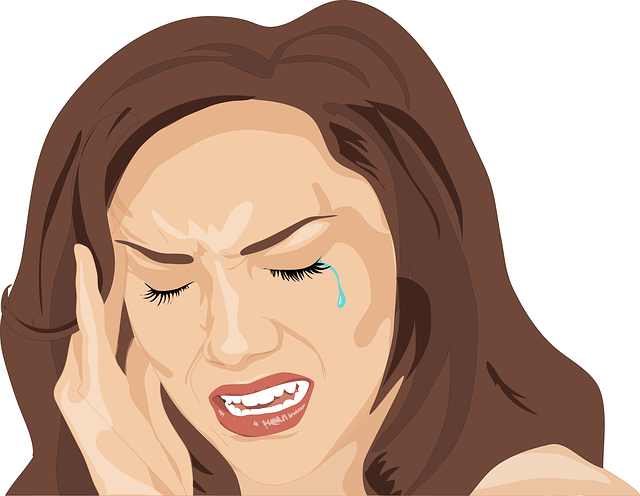Trigeminal neuralgia also called tic douloureux, is a problem of facial nerve pain, associated with migraine.
The pain is always severe and it’s one of the most severe pain humans can feel in their body.
Trigeminal neuralgia affects the trigeminal or 5th cranial nerve and causes facial twitching which feels like an electrical shock in the face.
The pain usually involves only the jaw and lower face, while occasionally it just affects the upper part of the face and sometimes even the region near the eye but it does not affect the eyes.
Studies have revealed that Tic douloureux is common in women than men, and also run in a lineage.
Trigeminal Neuralgia Causes
Trigeminal neuralgia or tic douloureux can be caused by many things; some of them are the following.
- Muscle spasms
- Infection
- Injury
- Inflammation
- Stress
Two conditions are believed to be responsible for the onset of this condition.
- One is when your central nervous system is damaged due to a stroke or acquired disorder
- The other is when myelin is missing from the nerve ends.
The first condition causes permanent damage to the nerves and the second causes the myelin to disintegrate.
The symptoms of myelin breaking down include numbness and tingling in the face.
Myelin is the substance that makes your facial nerves supple and allows your muscles to move properly.
The most common causes of tic douloureux are diseases or injuries affecting the muscles that control facial movements.
Trigeminal neuralgia is caused by the pressing of the blood vessels on the trigeminal nerves, and they are well distributed in the head.
This makes the nerve transmit pain signals that are experienced as stabbing pains.
Usually, people who get it after having surgery on their face or from a serious facial injury suffer from it.
On the other hand, people who get it after long periods of sitting down or have sleeping disorders, have a higher risk of getting it.
In addition, those who smoke or have other forms of smoking-related problems may also experience Trigeminal neuralgia.
Symptoms of Trigeminal Neuralgia
There are two types of symptoms associated with tic douloureux.
First is the more common pain and irritation, and second is the difficulty in achieving a relaxed state through relaxation techniques.
These attacks are caused by the spasm of muscles in the face, neck, and head when you’re eating, talking, washing your face, brushing your teeth, wearing cosmetics, etc.
When you begin to experience these symptoms, it’s important to stop the pain immediately and consult your dentist or family physician for advice.
If the dentist can’t give you any advice, seek further medical advice.
Treatment of Trigeminal Neuralgia
Treatment of Trigeminal neuralgia usually follows a thorough diagnosis.
It is usually considered that local anesthesia is administered.
However, the treatment of Trigeminal neuralgia depends on how deep the damage is.
One treatment option is topical or local anesthesia.
The general idea behind this treatment option is that the numbness will be reduced.
This reduces the pain sensation to the point where you don’t feel it anymore.
One advantage of local anesthetics is that it offers instant treatment.
Moreover, some can also control the rapid transmission of nerve impulses, which means you will not feel the tingling sensation any faster than it happens.
Topical anesthetics are used in cases where the numbness occurs mostly at the site of the pain, or in facial areas.
The symptoms of this condition include a tingling and itching sensation along with facial pain.
This type of treatment for the pain results in the reduction of facial or neck pain.
For a more rapid numbing effect, a local steroidal injection is usually made to the affected area.
Trigeminal neuralgia Drugs
Drugs may be prescribed to treat the symptoms of this condition, but these drugs are not recommended for long-term use due to the serious side effects that can come from their use.
- Strong pain killers such as Codeine and Demerol
- Antihistamines such as Benadryl and Claritin
- Sedatives such as Demerol and Ativan
- Muscle relaxants such as ephedrine
- Some anti-anxiety medications may be used to help control the pain and prevent the occurrence of more attacks
Although the pain killers are effective treatments for migraines, they can also have severe side effects that can cause further health problems in the future.
If you are considering using such drugs, make sure you carefully research all of the drug’s possible side effects before taking them.
There are, however, many natural treatments that can be effective at relieving pain and providing relief from the discomfort associated with the symptoms of migraines and trigeminal neuralgia.
Natural medications that can help control pain, reduce inflammation, and strengthen the jaw and teeth can include the following herbal supplements.
- Skullcap
- Devil’s claw
- White willow bark
- Sage
- Witch hazel
Herbal remedies provide no side effects and are safe for long term use.
